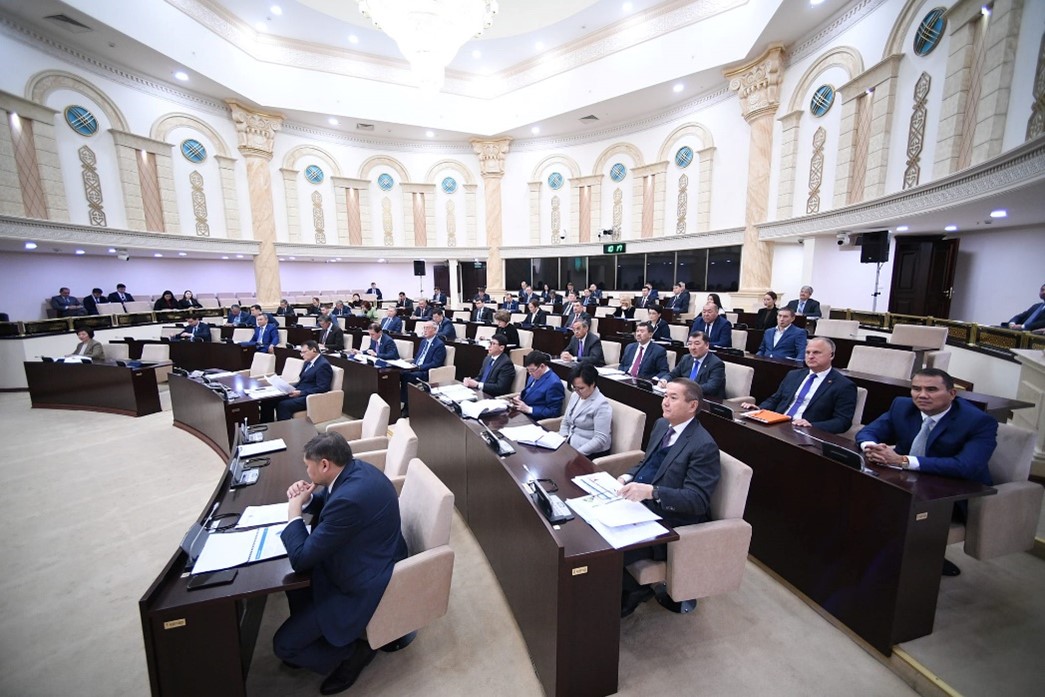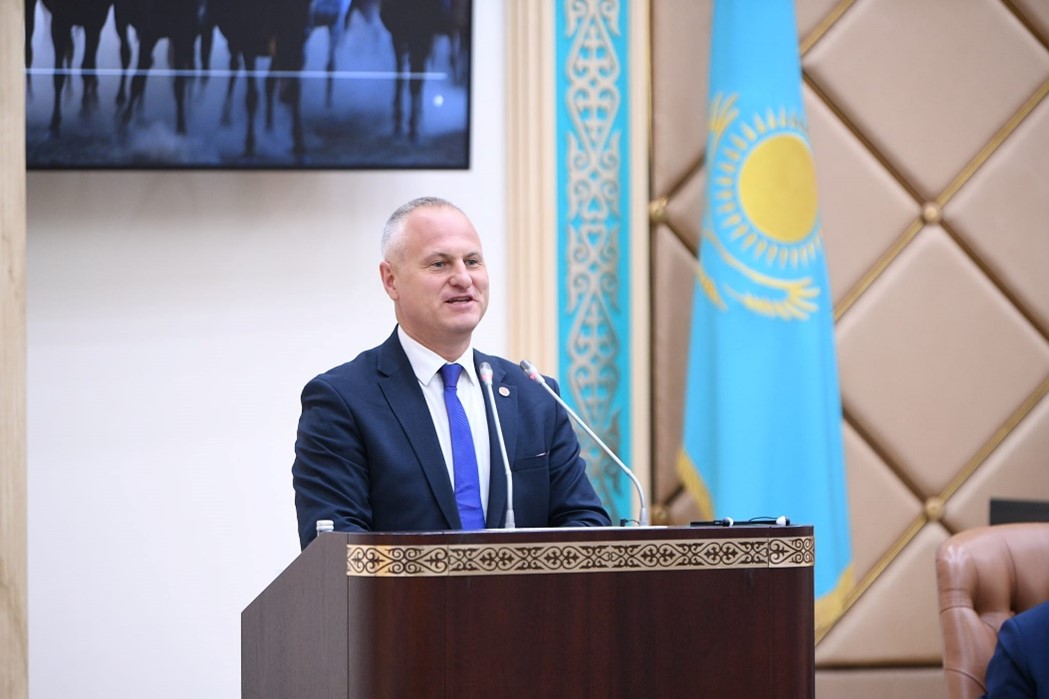WOAH was invited by the Parliament of the Republic of Kazakhstan to give a speech in the Senate on 24th November to address a crucial gathering focused on agrarian and veterinary science and education and in the Mazhilis on Veterinary Welfare issues on November 6, 2023. In the meetings, the representatives of the Ministry of Agriculture, Veterinary Service, Associations, and prominent figures, including rectors from agrarian universities, and representatives from scientific research institutes from Kazakhstan participated.
The primary agenda of the meeting revolved around enhancing the landscape of the veterinary area including science and education in Kazakhstan its current state of play, gaps, and strategies. Inviting WOAH, the discussion aimed to use the potential of the WOAH tools in strengthening the veterinary service as well as to explore avenues for collaboration, aligning educational practices with international standards, and fostering the development of the veterinary workforce.
WOAH’s presentation included an overview of WOAH, its rich history, organizational structure, and its pivotal role in shaping global veterinary standards. It highlighted WOAH’s commitment to animal health and welfare, emphasizing its collaborative approach to addressing challenges in the field. A significant portion of the presentation focused on WOAH’s role in veterinary and para-veterinary education. It elucidated the organization’s efforts in setting guidelines for curricula and competencies for veterinary graduates and its commitment to ensuring that educational programs align with international best practices. The emphasis was on the crucial role of veterinary and VPP training institutions in preparing a skilled and diverse veterinary workforce capable of addressing the evolving needs of animal health.
A key highlight of the presentation was the discussion on WOAH’s project dedicated to veterinary workforce development. It outlined the importance of veterinary workforce assessment and planning, continuous education, professional development, and global collaboration in creating a resilient and adaptable veterinary workforce. WOAH encourages the participation of veterinary faculties’ laboratories in interlaboratory cooperation, fostering knowledge exchange among veterinary professionals worldwide.
In our address, we encouraged the participants to actively engage in WOAH activities. This included participation in interlaboratory cooperation, aligning study curricula with WOAH guidelines, and aspiring towards international accreditation of veterinary education establishments.
The visit to the Senate of the Parliament of the Republic of Kazakhstan was a significant step towards fostering collaboration between WOAH and the legislative branch in the country. The meeting catalyzed discussions on how Kazakhstan can actively contribute to and benefit from WOAH’s initiatives, ultimately advancing veterinary service, science, and education on a global scale.


